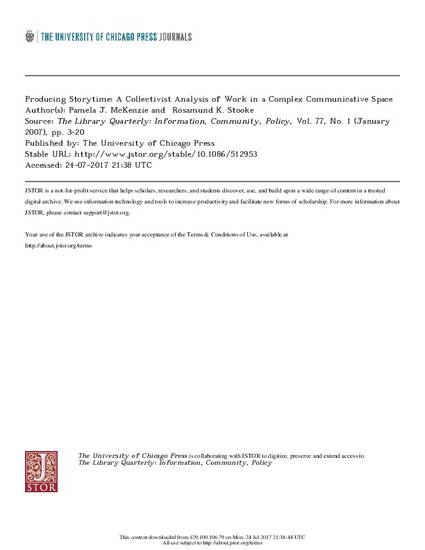
Storytime programs for young children are ritual events in the everyday life of the public library. This article analyzes data from two such programs to identify and analyze the work carried out by program leaders, their adult and child participants, and other social actors in other settings (e.g., library CEOs) in order to enable the program to happen. The study builds on research on the public library as a physical space and on the library in the life of the user by describing the often invisible literacy, information, and caring work that goes into accomplishing social settings within the physical space of the library. We contend that the work carried out to produce storytime is both discursively bound and value laden and that storytime participants constitute an emerging discourse community whose work coordinates and is simultaneously coordinated by the ongoing creation and maintenance of its discursive boundaries.
Available at: http://works.bepress.com/pam-mckenzie/20/

Library Quarterly, vol. 77, no. 1, pp. 3–27. 2007 by The University of Chicago. All rights reserved.
Jstor url: http://www.jstor.org/stable/10.1086/512953